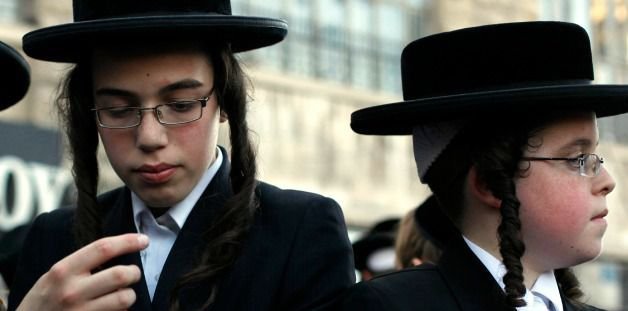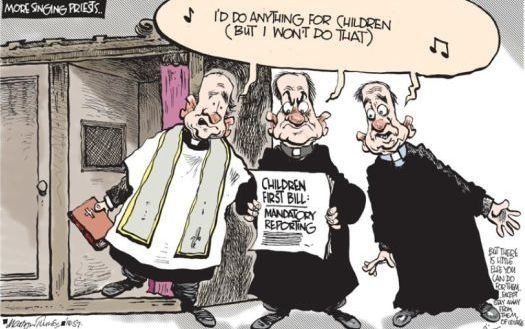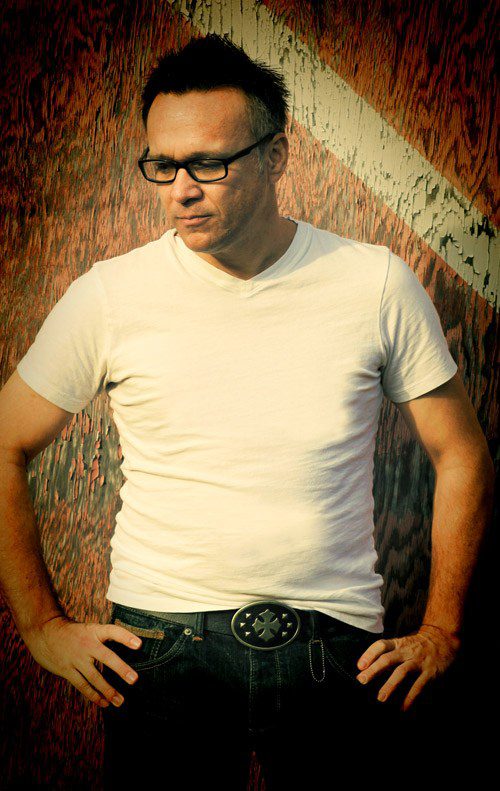
Guest Post by Brian
Reality is a complicated matter. Three people who appear to have been in the same place at the same time can easily produce three completely different stories about it. Words, then, have a pretty tough time, as they are the means by which we share, as simply or not, as we can, our Reality. I’ve always lied because I learned in the beginning that telling the bald truth was punishable, that it brought pain. Lying allowed me to avoid, or at least delay, the pain.
I was born into a family that served the Lord. First and foremost, beyond all else, the Master was served. It was Jesus-God who gave me life as he had given life to my parents, and of course my siblings. In the beginning, God . . . He created and sustained all and everything, me included.
How was I to know, when my mother pushed me from her womb, that all this was a big fucking lie from beginning to end? She was pregnant for the third time and when she attempted to sit up after delivering, the doctor told her to lie back down: “Please, please lie down! We aren’t finished yet. There’s another one coming . . .”
So it was that either myself or my brother joined his twin that day in 1952.
My mother had already given birth to my eldest sister a few years before, a toxic birth that put her into convulsions at home. Dad called an ambulance and they rushed her to the hospital and filled her with narcotics, severely compromising the whole process and leaving her firstborn brain-damaged, with a failure to thrive. She did appear somewhat as a normal baby but never developed as time passed and eventually had to be taken into full-time care at a provincial hospital. That was after my older brother was born more than year or so later, a robust baby who demanded what all babies do: mommy’s attention. After another pregnancy (me and my brother) it was clear that my older sister would not be getting the care she needed at home so the decision was made to give her over to provincial care. She lived more than fifty years, completely compromised, never able to speak or walk or use her arms. She died tragically in her fifties when a care worker, having routinely raised her in a sling for a bath, lowered her into scalding hot water. She did not die immediately but suffered third degree burns over two-thirds of her body. It took her a few days to finally give in and pass away.
Merciful Jesus. God in Heaven. My father had been preaching for a few years when my sister was born, and he trusted God with the experience of his fathering a toxic child whose life would be lived totally in-care, helpless. So, fifty-some years on, when she was lowered into the bath that would be her last, he said in the midst of his horrible pain, that God’s will is indiscernible, unknowable, and that we must realize that all things work together for good for those who know the Lord.
I was an adult when I lost my sister in this crazy and tragic accident, and I kind of went nuts over it. How could this ever happen? It was wrong, every way I looked at it. I phoned my mom and gently told her that I was calling a lawyer because . . . because . . . because . . . She listened and said that they would follow up. As a result of the death, new provincial legislation was passed to make it less likely that another killing would occur. My parents were given some money for their suffering and I claimed a settlement for myself, for a short term of therapy to deal with the loss.
But let me get back closer to my beginnings as a twin in the early fifties. When my brother and I were born, we had each other’s names. I was him and he was me. When my maternal grandma came to visit with my Baptist preacher grandfather, she changed our names, saying that my brother should be me and I should be my brother. My poor mother, after having remained unaware she was carrying twins, didn’t, by that time, give a rat’s ass who had what name and so I became my brother that day and he, me. This has always seemed to me somehow terribly significant, terribly symbolic of something or other but, as I have tried to share, reality is a mystery, a lifelong theater.
Let me leave this conundrum and go back a bit further, to approximately the ‘20s — the 1920s. It began on farms, both my mom and dad growing up fairly near one another, in rural Southern Ontario, Canada. My dad was the son of a farmer who had himself a large family and then eventually had to work off the farm to scrape together a living, leaving my barely-a-teen dad with the farm work. There were brothers but they found ways to leave so that dad was left with chores he did not enjoy at all. This might be partly a lie, as he refused to confirm or deny it. He would not talk to me much about his early farm life, only to say it was not good and that as he manned the horse-driven plow, the only thing that kept him going was searching the plowed earth as it was turned over, searching with all his might for Indian arrowheads. (Much of that part of the province was settled long before the white man by Natives, then called Indians, and dad collected many arrowheads in his hours of labor.) The years I am referencing here were pre-WWII, and life consisted of farm work, basic schooling and church attendance.
It was the church that offered my dad his freedom, and he enrolled in a Bible school to become a Baptist preacher. I am not sure what became of the farm when he made the choice to leave for the ministry, but I think it managed to carry on for several more years before it was given up. I don’t think my grandfather ever returned to work the land in any big way.
My maternal grandfather was a Baptist preacher, so mom grew up in a preacher’s home. The decades before the WWII were full of school and church life for my mom. She was a middle child and had both brothers and sisters. She left a diary from her high school days that my brother found among her things after she died last year and the diary revealed a young woman with strong feelings and a well-trained skill in writing around dangerous subjects and not revealing outright that which would be sinful and wrong. (My dear mother taught me to lie, I would say, taught me survival. My father withheld to survive, kept quiet and moved carefully.) In her diary, mom made it clear that any boy interested in being her friend in school would be vetted first by daddy and judged for his worthiness primarily by how much faith he showed and lived for all to see. People who did not attend church were unlikely to be good company at all and though they were part of the crowd at public school, they were always viewed through a Christian lens and kept at a safe distance.
Mom knew dad in those school days. He was a Christian, she thought for sure, but he was apparently not very social and kept pretty much to himself and a few other young men. (I think his time was fairly dominated with farm chores!) Even in those early mentions of my father in my mom’s diary, he revealed himself a loner and my mom applied her romantic wishes to that fairly blank slate. Dad fit the bill because he was a Christian. She thought he was smart-looking and when he chose ministry, mom set her sights on him. She made her own way toward independence by choosing the nursing profession, a perfectly acceptable choice for a young, unmarried Christian woman. It was a life of service that was acceptable and somewhat approved in the church, especially as it became clearer that war was coming again. Dad finished bible school — about three years of study. It was a rigorous teaching in Protestant doctrine with proud Baptist colors.
This was a time after the Fundamentalist-Modernist controversy that swept America and resulted in Canadian Baptists choosing one side — the Convention — or the other side — ours, the true faith of the Union: those who held faithfully to the matters of inerrancy of scripture, the Atonement, the Resurrection and so forth, those essentials which, should they be abandoned, would lead us all down those dark path to eventual Satanic Atheism. In earlier Canadian history, we believers endured other splits too, and my dad clung to the Calvinist leanings of the old Regular Baptist days in his Bible school training. I surmise this from my memory of listening to his sermons, not from his sharing with me, because he refused to talk about his life. I made it clear to him by my rebellion as a teenager that I did not have a sincere interest in serving the Lord and so would use any information he shared with me regarding his history and ministry work, as fodder to attack what was not to be attacked but worshipped and adored.
Well, I certainly was morose and angry as a teen, depressed quite a bit and unable to feel free. My dad, being an isolated man, found it easier and better all around to remain a loner. He couldn’t help me — I knew that early on. He never really had a best male friend in his adult life and spent his time alone, reading. He collected religious books so that our simple home life was lined with them — cases and cases of mostly religious books, with a bit of literature thrown in, along with the popular cowboy writing of the time: Zane Grey and some Louis L’amour. I never did, and never have, read the cowboy stuff. We had a huge sculpted-cover, gold-page-edged Bible that was a job to even lift and marvel over. It had pictures too. I saw Daniel in the lion’s den!
Dad joined the air force, the Royal Canadian Air Force, just before the war and at the tail end of Bible School. He served on the prairies as an airplane technician, testing planes that had been serviced there. He did ground testing and hardly flew, though as a child he had spent time cutting out newspaper pictures of planes and collecting them in a scrapbook we discovered among his things as he aged. After his service, he married mom and they went into ministry and raised six kids.
My dad’s first church was one that he built himself, with the assistance of other men of faith. Dad had become a fine carpenter in his farm days and his skill was utilized fully in this new vocation. The church in its heyday had over a hundred members in a town that never broke ten thousand in population.
Mom worked as a nurse to supplement a lousy living in the ministry. I’m quite sure my dad never felt free to ask for a decent wage, nor would he believe God wanted him to ask. Instead, we lived by faith, and Mom’s hard work as a nurse.
It is my belief that God hates women and wants them eternally punished. I know this from watching how women are treated in churches, even those who call themselves modern and open. (I jest of course about God’s hate, because as far as I have seen, there is not now and never was a God. There are myriad concoctions called Gods invented by myriad people over time but I cannot believe in any of them.) As for women and God, things have changed for the better over the years but there are plenty of throwback Baptists and others out there busily holding to the Bible and routinely abusing women because they are well aware of God’s judgment on females from Eden onward. True love is following God’s will first and foremost. That which today I call open and blatant abuse of women, throwback religious men call the only true love in the world, the love of God for the weaker sex.
Even though dad took full advantage of God’s hatred for women, he did not relish bullying behavior. He believed in corporal punishment because he understood the scriptures as supporting it but he rarely exercised the option. Dad was not a physical abuser. He was not a man who raised his voice much beyond the pulpit, or even in the pulpit. My father’s failings had to do with what I would call ‘lack in life,’ what he did without, how he coped by being alone, being a loner.
I think of preachers as people who are communicators and who work on language and expression in order to convey the “message,” but my dad was not a communicator. He did not willingly talk much at all and preferred silence. He adored words — don’t get me wrong — words on a page that he could devour in silence. He never listened to music and had only an acceptable singing voice, not pleasing but not tone-deaf. Mom played the piano, somewhat unevenly, as her family grew, and she sang well too.
But what am I trying to do here by sharing these bits and pieces, this overview of life before and then during the time when I came along? It’s complicated. Some of it is probably lies I have told to survive. Reality is fluid and so we aim at a moving target in sharing our lives.
Mom and dad died last year, not more than a month or so between their exits into the ether. Dad was already quite demented but still smiling sometimes and it took him several weeks to realize mom was gone. He would look at me and his forehead would furl: “Mom’s gone to heaven now?” he would ask again and again and I would tell him that yes, she was gone, that she had died. Reality is a mysterious thing; have I said that too much? So how did he just up and die himself once the truth of mom’s passing was set in his head? Was his death, so close to hers, a fluke? Reality is not a simple thing to keep up with and those who say the Bible is a book God made simple enough for all to understand merely display their ignorance, and perhaps their inner wish that they had a clue about it. They are liars, startlingly similar to myself.
I am now retired, several years to seventy and an atheist without Jesus and his promise, and without his dad too. Being honest is not easy because I learned to lie in childhood to survive. I learned to parrot the correct words. I learned to hate myself for being bad.
I’m a ways down life’s road now and still too much a cliché, still not enough myself, not able to simply be. I watch children, little children being themselves and I marvel. I see in their free flight why we harm them, clip their wings and send them to training school.
I don’t believe in magic Jesus and sometimes wonder if more than half of the historical Jesus ever really lived at all. I wonder if there was a guy who drew attention, was bright and said some remarkable things, then drew the attention of bullies and was killed by them . . . and became a blank slate for humankind to write on. Perhaps the Bible is mostly graffiti. A lie too. Perhaps the Bible lies like I do or — no — better, much, much better.
But the Bible does not bear much attention in my life now and lacks pragmatic purpose, to say the least. We live in a time when our politics have become comic to the point of tragedy. Unless we can move beyond delusion and belief, we cannot allow ourselves to love our neighbors because we do not allow a basic love of self. There. I said it. I have played my card. We are not the selfish and fallen but the hated and abandoned and we finally have ourselves to answer for that lack. At what age in our lives do we finally become the author of our lives?
The man behind the curtain is finally only that one we see when we glance in a mirror.
I have come to believe that religion is not helpful. It is, as is often suggested, misguided and subject to human error. But that is because it is invented by imperfect beings who are always changing. Religion, or Belief, is not something that saves, but that depletes and spends uncontrollably, without reasonable balance. It demands that we admit we are basically evil and cannot help ourselves, and it has such power in our lack, the baggage of lack we carry with us, that we fully entertain outright abuse in our lives. We will listen to the first commandments and not balk and cry out a healthy “Bullshit!”
One of the most compelling proofs of our learned lack is the fact that children who are routinely beaten cannot even stand with themselves in their heart of hearts and have learned, through our lack as their elders, to take responsibility for the actions of the abusers who injure them. We have not been able as people to engender in our kids a basic right to own themselves and be free of taking responsibility for those who harm them. A beaten child always admits he is bad and so get beaten more. Children almost always share this when asked about being harmed. They believe they caused it and if they could only be better, then it would stop. We teach this in church every bit as much as we teach it from the bottom of a bottle of whiskey, every bit as much as an adult who punches to the head of a six-year-old child. Men do this harm far more than women, but it is not about gender, but about self-respect. Religion has been around far longer than any of us, and yet it has not accomplished the most fundamental and integral outcome. It has not modeled for us a basic, life-giving self-respect. It has co-opted our language and redefined words to fit “scriptural”’ ends but it has not looked after our innocence. We have been abandoned, and so have learned how to abandon ourselves. Thank you Jesus. Thank you Mohammed. Thank you God. There are so many religions that we have religions containing religions ad nauseum and all of them requiring our sustenance, our food and money, and all of them depleting our respect for ourselves and others.
Religion lies for a living. All religion. All Gods. Magicians are liars too but far more honest than any Pope. They trick your eyes and ears and make an honest living from it. Religion purports to be something other than what it is in pragmatic reality. It purports to save while in fact it spends, hoards and depletes. It purports to define and display the essence of love while it remains full of falsehood and deception.
My mom and dad loved me, loved all six of us kids with all the heart they could muster and it was good. It was far better than most experienced nearby us and I am forever thankful for what they accomplished. My parents loved us as all parents love, to the utmost, to the very best they can do, with everything they have . . . .
Now it must be acknowledged that everything my parents had included what they lacked in their own lives. I see as I get older that my father and much of his family suffered depression, untreated. My loner father treated his condition by becoming a preacher and my mom coped with being a Christian woman by marrying a preacher like her own father. The same subterfuge of her high school diary was perpetuated by finding a like structure in adulthood to carry on carrying on.
Both my parents were given over to God and in turn, they gave over their children. Of their five remaining children, only two were able to turn away from religion at all. The rest carry on the tradition with some variations in flavor but the basic ingredients the same old same old . . . .
And my journey? I was saved as a youngster, barely school-age, terrified and having nightmares about hellfire. I believed in God because I was told to and that was all there was as far as I could see. I learned at a very young age that I was a sinner and had to keep asking for forgiveness because I could hear swear words in my head and I stole some candy or did any of a million innocuous things that proved I was bad.
As I grew older, I grew more depleted and more sullen. I felt such anger, a generic misery that I understand now as my own body protesting the harm being done by our way of life. But then, back then I understood none of it. As a teen, I rebelled as much as I could, smoking dope and listening to Hendrix and Dylan. I tried like hell to drop out but could not quite accomplish it and always ended up at home again feeling dragged along and horrible.
Then, I figured it out. I realized that Jesus needed me to be myself and to follow only him and not any religion or way. I began my own private church, Brian’s church, and began to cherry-pick scriptures to be comfortable, to be able to still have Jesus and yet be done with the church as I knew it.
Honestly, really, in our heart of hearts, don’t we all invent our own church and our own God when we choose to throw the Faith dice? I think we do. I recently heard somebody say there are as many Christianities as there are Christians and that strikes me as on the mark.
As I grew tired with my own church inventions, I changed them up and continued on. I stopped attending churches except for the odd wedding or funeral. I found myself spending less time — less and less time — obsessing about these matters and even one day entertained the idea that I might not really believe in God at all. It was only for a second, though, and it haunted me so that I steered clear of it for years.
One day more than halfway through my life and long after I had fallen in love, married and had kids, I said quietly to myself, “I don’t believe.” Again, as before, I prepared to feel a blow to my sternum and to be flooded with fear. But nothing happened. Somehow, in the interim, in time passing, Elvis left the building and I stood there quite alone with my breath. The world glowed as I stood there and I tried it again: “I really just plain don’t believe.” Silence, normal pregnant silence, and the world was alive in my eyes. I stood there and felt a huge weight gone, just gone. Holy Jesus! This is honesty. I am being honest!
I once wrote a found-poem from a McDonald’s paper placemat. The placemat was targeting children and was simply numbered instructions that led the child to form a smile on their faces. At the end of the poem, the last point was the statement: “You are Happy!” I was indeed. Honest truth . . . I had been released!
I am free to honor myself and to honor innocence in all things. I declare wholeness and that we are not fallen creatures. I declare abandonment of restrictions on our vision, our journey in life. I declare that what the whole church has been unable to accomplish for centuries, Norm Lee has accomplished! (Norm was a teacher, an abused child almost killed by his dad, beaten to a pulp. He went on to dedicate himself to being a dad who would never harm his kids, never punish them but stay in healthy relationship with them and let them take the lead in their own lives. I had the great good fortune to know this man, who wrote a book called “Parenting without Punishing.”)
One person can change the direction of the world by saying the buck stops here. I will not harm as I was harmed. The basic message, perhaps, of Jesus’ Beatitudes was to live fully. When one strips away the references to the time and to a God, one is left with a very symbolic expression: feel truly and with passion. Honor yourself and others. Be blessed with life. Perhaps the Christ did just that, I don’t know, and if he said, Follow me, he meant live your life free and clear, without fear and without harming yourself and others. Be Norm Lee.
Know what I mean? Reality is a mystery to me.
Share This Post On Social Media:


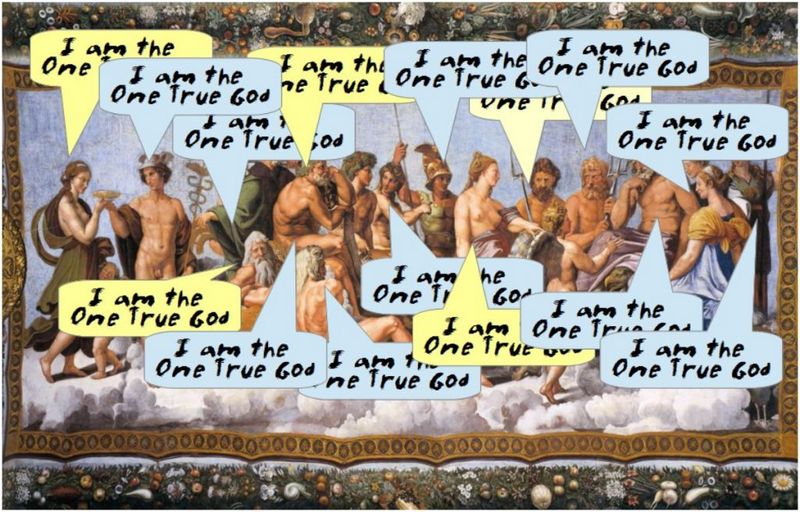
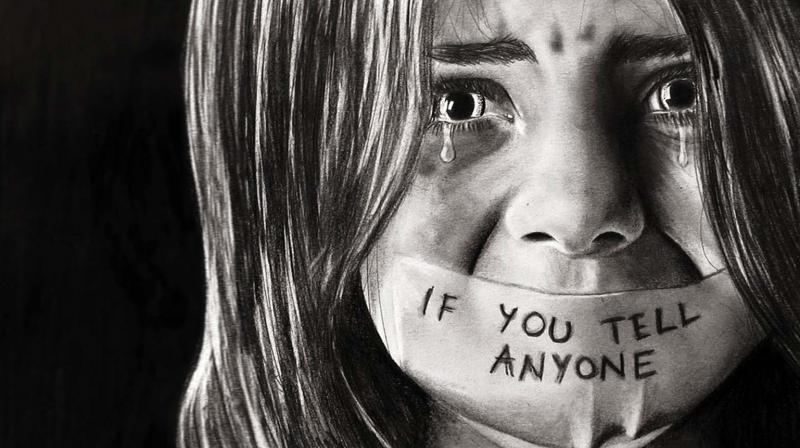
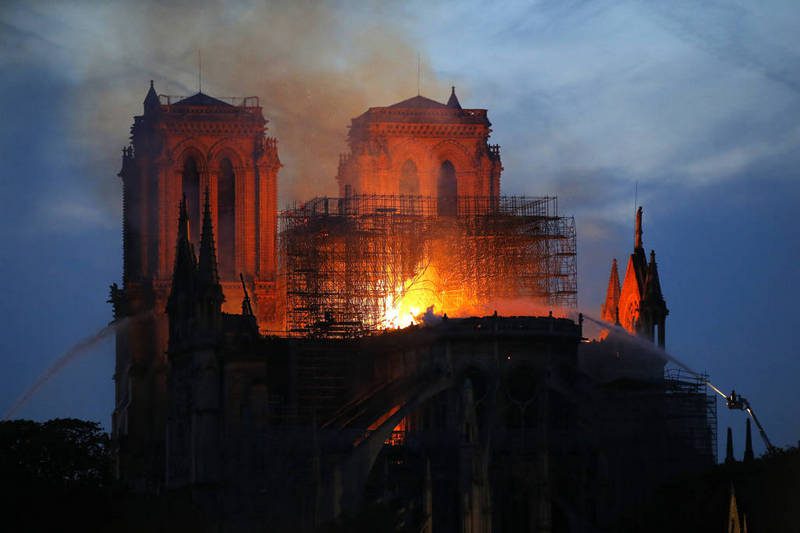 Guest post by MJ Lisbeth
Guest post by MJ Lisbeth